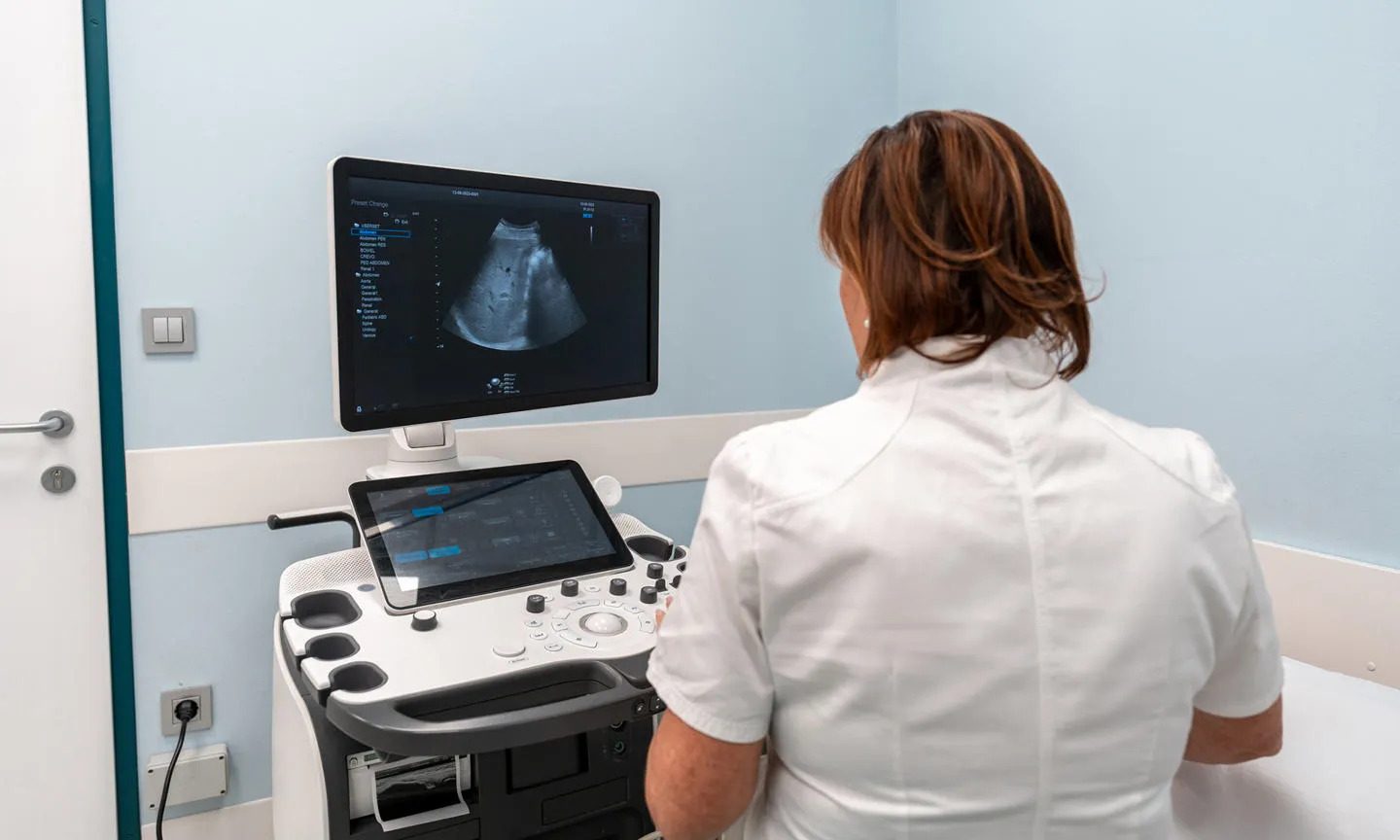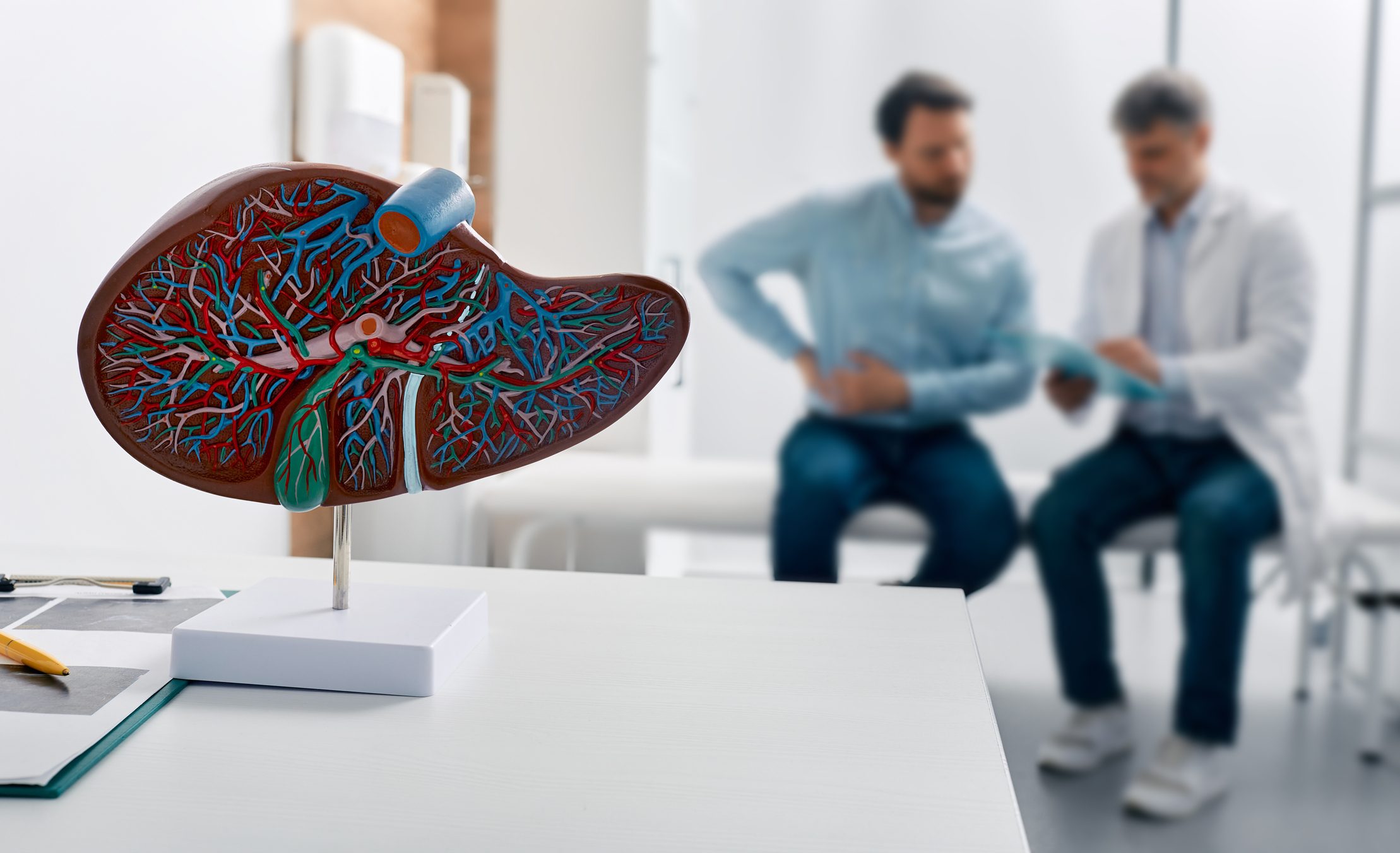Home » News and events »
Common antibiotic could treat inflammatory bowel disease, new study finds

Research theme
People involved
Associate Professor and Honorary Consultant Hepatologist
Consultant Gastroenterologist
An antibiotic used to treat infective diarrhoea could be an effective drug for a type of inflammatory bowel disease, a new study has found.
Results published in the Journal of Crohn’s and Colitis revealed that an antibiotic called vancomycin may also be effective in treating people who have a specific type of inflammatory bowel disease (IBD), which develops in the context of an incurable autoimmune liver disease called primary sclerosing cholangitis (PSC). Notably, four in five patients who participated in the study achieved remission after taking the drug as part of a clinical trial.
This study conducted by researchers from the University of Birmingham is significant, as several participants with this disease had not responded to other IBD treatments. Moreover, IBD and PSC are closely correlated, with most individuals who have PSC developing IBD, and up to 14% of patients with IBD also developing PSC. This increases the chances of needing colon surgery and getting colon or liver cancer, needing a liver transplant, and the overall risks of death.
“Our findings suggest that vancomycin could offer a new therapeutic option for patients with this challenging combination of IBD and autoimmune liver disease.”
Dr Mohammed Nabil Quraishi, corresponding author of the study
Dr Mohammed Nabil Quraishi, University of Birmingham, corresponding author of the study said:
“Our findings suggest that vancomycin could offer a new therapeutic option for patients with this challenging combination of IBD and autoimmune liver disease. While these results are preliminary, they provide a strong foundation for further research.”
80% achieved clinical remission
As part of the trial, participants were treated with the oral antibiotic for four weeks and followed up for a further four weeks during which the medication was discontinued. After four weeks of treatment, 80% of patients achieved clinical remission with a significant decrease in inflammatory markers, and 100% showed mucosal healing. When treatment was stopped, symptoms returned. Vancomycin was also shown to induce changes in certain bile acids, which are now being further investigated to develop and refine treatments for IBD associated PSC.
Dr Palak Trivedi, Associate Professor and Honorary Consultant Hepatologist at the University of Birmingham’s Department of Immunology and Immunotherapy, researcher at the National Institute for Health and Care Research (NIHR) Birmingham Biomedical Research Centre, Consultant Hepatologist and Clinician Scientist at University Hospitals Birmingham NHS Foundation Trust, and senior author of the paper, said:
“We are now preparing applications for a randomised controlled trial to determine the therapeutic effects of vancomycin. This next phase of research is crucial to understanding the full potential of vancomycin in PSC-IBD treatment.”
The trial was supported by an ECCO Grant – part of European Crohn’s and Colitis Organisation Fellowships & Grants Programme, sponsored by the NIHR Birmingham Clinical Research Facility at University Hospitals Birmingham NHS Foundation Trust, and delivered through the NIHR Birmingham Biomedical Research Centre based at the University of Birmingham.
-
Notes for editors
- For media enquiries please contact Tim Mayo, Press Office, University of Birmingham, tel: +44 (0)7815 607 157.
- The University of Birmingham is ranked amongst the world’s top 100 institutions. Its work brings people from across the world to Birmingham, including researchers, educators and more than 40,000 students from over 150 countries.
- England’s first civic university, the University of Birmingham is proud to be rooted in of one of the most dynamic and diverse cities in the country. A member of the Russell Group and a founding member of the Universitas 21 global network of research universities, the University of Birmingham has been changing the way the world works for more than a century.
- The University of Birmingham is a founding member of Birmingham Health Partners (BHP), a strategic alliance which transcends organisational boundaries to rapidly translate healthcare research findings into new diagnostics, drugs and devices for patients. Birmingham Health Partners is a strategic alliance between seven organisations who collaborate to bring healthcare innovations through to clinical application:
- University of Birmingham
- University Hospitals Birmingham NHS Foundation Trust
- Birmingham Women’s and Children’s Hospitals NHS Foundation Trust
- Aston University
- The Royal Orthopaedic Hospital NHS Foundation Trust
- Sandwell and West Birmingham Hospitals NHS Trust
- West Midlands Academic Health Science Network
- Birmingham and Solihull Mental Health NHS Foundation Trust
About the NIHR
The mission of the National Institute for Health and Care Research (NIHR) is to improve the health and wealth of the nation through research. We do this by:
- Funding high quality, timely research that benefits the NHS, public health and social care;
- Investing in world-class expertise, facilities and a skilled delivery workforce to translate discoveries into improved treatments and services;
- Partnering with patients, service users, carers and communities, improving the relevance, quality and impact of our research;
- Attracting, training and supporting the best researchers to tackle complex health and social care challenges;
- Collaborating with other public funders, charities and industry to help shape a cohesive and globally competitive research system;
- Funding applied global health research and training to meet the needs of the poorest people in low and middle income countries.
NIHR is funded by the Department of Health and Social Care. Its work in low and middle income countries is principally funded through UK international development funding from the UK government.
The National Institute for Health and Care Research (NIHR) Birmingham Biomedical Research Centre translates new scientific discoveries into treatments and diagnostics to improve people’s health in the UK and across the globe. We focus on inflammation, a common feature of many diseases, and work to improve its diagnosis, prevention and treatment. We are part of the NIHR and hosted by University Hospitals Birmingham NHS Foundation Trust in partnership with the University of Birmingham.
University Hospitals Birmingham NHS Foundation Trust
University Hospitals Birmingham NHS Foundation Trust (UHB) runs Heartlands, Good Hope, Solihull and the Queen Elizabeth hospitals; UHB also hosts the Institute of Translational Medicine (ITM).
- The Trust has over 2,700 beds, over 80 theatres and a 100-bedded critical care unit – the largest in Europe, and cares for over 2.2 million patients each year, employing over 24,000 staff.
- QEHB is a Major Trauma Centre treating the most severely injured casualties from across the region.
- Our hospitals are regional centres of excellence for trauma, burns, plastics, neurosciences and cancer and in 2014 became a lead genomics centre as part of the NHS 100,000 genomes project.
- UHB is proud to host the Royal Centre for Defence Medicine (RCDM). The RCDM provides dedicated training for defence personnel and is a focus for medical research.



